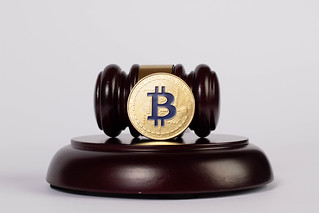Palm Beach Bitcoin Case Heats Up With Plaintiff Deposition, Discovery Memo, and Hearing this Week (Est. of David Kleiman v. Craig Wright)
- By : Cbh
- Category : Palm Beach, Virtual Currency

We have been following the bitcoin lawsuit pending down the street at the federal courthouse in West Palm Beach between the Estate of David Kleiman and W&K Defense Research, LLC, on the one hand, and Craig Wright, on the other. Bitcoin enthusiasts believe that Kleiman and/or Wright may either be Satoshi, the founder of bitcoin, or have knowledge of the mystery person’s identity. While the parties battle over damages, the hope in the bitcoin community is that this litigation will reveal answers about the origin and founder of this virtual currency.
There has been a brewing battle over discovery, which is not uncommon in cases which are dense with electronically stored information (ESI). Likely complicating matters is that the ESI in this case may reach deeper than the production of mere emails and Word documents, given what Kleiman and/or Wright may have been doing in terms of coding and other complex programming. It also appears that Kleiman’s documents may not have been not well-organized upon his untimely death (at least by third party standards) and may have been informally collected afterwards by family and business partners.
Be that as it may, as a rough general rule, it is not unusual in ESI cases for one side to make broad discovery requests and the receiving side to request for narrowed requests and additional time to respond. Whether that general rule applies to this case may become evident as early as this Thursday.
The Plaintiff and personal representative of Kleiman’s estate was deposed on on April 8. A deposition transcript has likely not been typed and may or may not filed in a complete form due to a confidentiality order. The deposition occurred in London and apparently required the lawyers to contact Magistrate Judge Bruce Reinhart during the deposition.
His rulings, found in the April 8 Order Memorializing Rulings, held, among other things: (1) the plaintiff could not force Wright to answer how much BTC he mined in 2009-2010; (2) Wright declined to answer questions about his ex-wife due to ongoing litigation and possible Austrian law issues; (3) Wright declined to testify about his current wife citing standard marital privileges; and (4) Wright declined to answer questions based upon claims of national security. Most, if not all, of those issues will be addressed at the April 11 or future hearings.
The next day, April 9 (Tuesday), defendant Wright’s counsel filed a 4-page Discovery Memorandum alerting the court that the Plaintiff’s deposition revealed that (1) the Estate has “no evidence to support their claims” and (2) “plaintiffs’ campaign of world-wide discovery is nothing more than [a] fishing expedition…”
According to the defense Memo, the personal representative had no personal knowledge or evidence to support the allegations in the complaint, including whether Kleiman possessed a significant amount of virtual currency or if the defendant alleged stole anything. This was followed by allegations that evidence and documents may have been thrown away, taken by former business partners, or over-written.
The defense Memo is here. The Plaintiffs have not yet responded (likely due to travel and time constraints).
A hearing on discovery issues is scheduled for April 11 (Thursday).
Some parting notes and comments:
- We will likely follow the Kleiman case given that it is in our backyard and holds the potential to provide some insight into the origin of bitcoin. Who know it might be from Florida? (see this New Times article)
- Often in cases where a personal representative of an estate is the plaintiff, the appointed “PR” often lacks “personal knowledge” of the case since the PR is appointed to be the human being to represent the estate — it does not mean that person was involved directly in the decedent’s business. So it may not be surprising that he lacks “personal knowledge.” We’ll see if that general rule has any application here.
- Another general rule: frequently, in complex computer cases, often the basis for the lawsuit rests with the lawyers who have hired experts who obtain evidence and form admissible expert conclusions. Here too, we do not know if that is what supports this particular lawsuit.
- Since we are going to be discussing this case as it progresses, as a matter of full disclosure, and to the extent someone concludes that it matters, I was a former law partner of the magistrate judge. I have not spoken with him in a year or more and have never discussed this case with him.
Photo Credit: Marco Verch on Flickr


